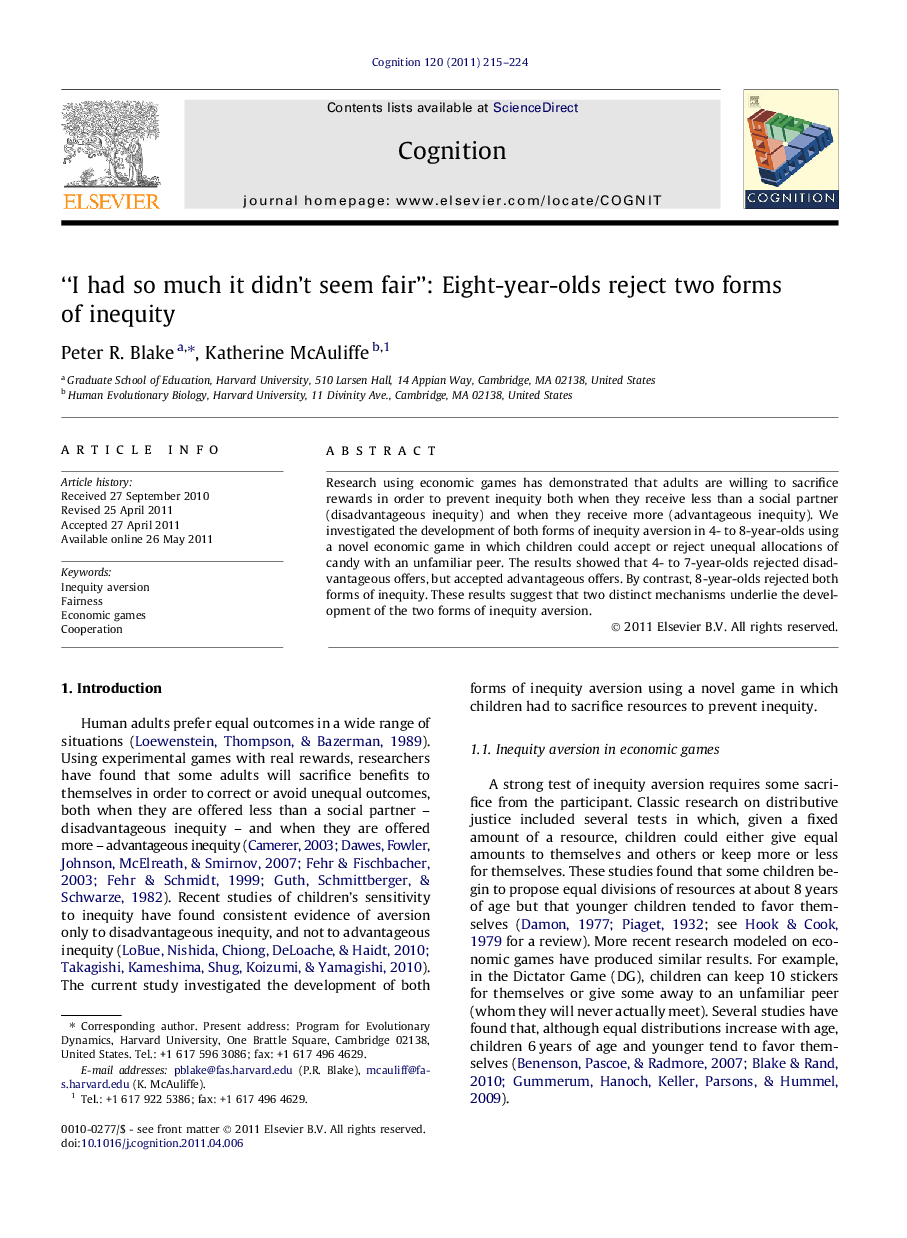| Article ID | Journal | Published Year | Pages | File Type |
|---|---|---|---|---|
| 926532 | Cognition | 2011 | 10 Pages |
Abstract
Research using economic games has demonstrated that adults are willing to sacrifice rewards in order to prevent inequity both when they receive less than a social partner (disadvantageous inequity) and when they receive more (advantageous inequity). We investigated the development of both forms of inequity aversion in 4- to 8-year-olds using a novel economic game in which children could accept or reject unequal allocations of candy with an unfamiliar peer. The results showed that 4- to 7-year-olds rejected disadvantageous offers, but accepted advantageous offers. By contrast, 8-year-olds rejected both forms of inequity. These results suggest that two distinct mechanisms underlie the development of the two forms of inequity aversion.
Related Topics
Life Sciences
Neuroscience
Cognitive Neuroscience
Authors
Peter R. Blake, Katherine McAuliffe,
